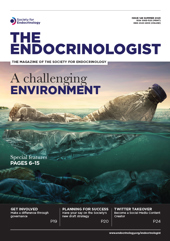It has been a privileged and exciting journey, as I look back on my 40 years in the NHS as a clinical academic, spanning research, patient care and academic leadership. Throughout my career, there has always been a professional conflict between wanting to achieve one’s best for patients or personal/team research aspirations, set against fiscal restraint. One senses that, for many, this has now reached a crisis point. Why is this so and what might the future have in store?
THE CURRENT SITUATION
Over the last 40 years, we have collectively added approximately seven years to life expectancy, but this has come at a price. Set against a flat/low growth economy, we spend approximately 10% of our gross domestic product (GDP) on healthcare, but the demand cost is escalating at a rate of 5–8% each year.
Yes, we have made major inroads into reversing premature death from cardiovascular disease and cancer, but at the expense of an aged population with co-morbidities and non-communicable disease. The demographic change to the population we must now serve has contributed to significant workforce pressures across all healthcare workers, with priority moving to ‘care’ versus ‘cure’ exacerbated by a non-aligned and rudimentary social care system.
To our cost we have prioritised secondary and tertiary care services at the expense of public and population health, creating a ‘National Disease Service’ rather than a holistic NHS that can address the main health challenges of the day through prevention, screening and early diagnosis.
Since Aneurin Bevan’s inception of the NHS in 1948,1 the core principle has remained the same: ‘available to the whole population freely’. It is part of our constitution and British culture. I remain a passionate advocate for our outstanding NHS but, if we want to continue to deliver the ‘highest service to all based on need’, then we must think of new funding models that are fair and equitable, but which offer greater personal buy-in and responsibility for our health. I am often bemused by how healthcare works better for our pet dog than it does for my treasured family members.
There are big decisions for society to address, but I have real scepticism that this will ever happen, so long as this is left to the whim of politicians and to manipulation as a government election tool. Surely our personal health is too important for this?
In research and innovation (R&I) and, specifically, biomedical and health research, we have punched well above our weight globally. For 1% of the world’s population and 4% of global spend on research and development, we produce 16% of the world’s highest cited outputs. Our impact, as evidenced through successive research excellence framework cycles, has been world-leading.2,3
We have always benefited immensely from an alignment of the Medical Research Council (UK Research and Innovation), medical charities (notably the Wellcome Trust, Cancer Research UK and British Heart Foundation) and National Institute for Health Research (NIHR). We must hope this continues, following recent changes at the Wellcome Trust. However, the ramifications of Brexit and our ongoing participation in Horizon Europe remain a real threat to future research funding. In recovering from the COVID-19 pandemic, I feel particularly concerned for our early career researchers and the plight of aspiring clinical academics, faced with current university funding models that have unwisely relied too heavily on international students from China and the Far East.
HOPE FOR THE FUTURE
But I remain confident that we can and will evolve. Prevailing winds include recent NHS legislation and the introduction of integrated care systems for more effective co-ordination of healthcare delivery.4 There is, at last, an acceptance that R&I needs to be a critical part of NHS activity, because it improves quality and outcomes for patients, and both major political parties seem to have accepted the importance of R&I, pledging target figures of 3% of GDP for research.
There seems to be a more conciliatory tone to association with Horizon Europe with detailed discussion around so-called plan B alternatives should this not come to fruition.5 Future research careers continue to be a major focus of work across the Academy of Medical Sciences. Working with its stakeholders, numerous initiatives are either in place or under development that will make a difference, particularly for clinical and non-clinical researchers post-PhD.6
As endocrinologists, we need to be agents who will bring about change. We are in the midst of the so-called ‘fourth industrial revolution’.7 The exciting infusion of computation, digital, artificial intelligence/machine learning and engineering technologies into biology and medicine offers immense potential to change how we deliver future healthcare in a more sustainable way. In continuing to pioneer new therapies for our endocrine patients, endocrinologists must become key investigators in large interdisciplinary research teams comprising bioscientists, engineers, mathematicians/digital and data analysts, behavioural psychologists, medical technologists and patients themselves, to address the major challenges of the day, be they obesity, frailty, health inequality or climate change.
The health technology sector and its convergence with digital, artificial intelligence, diagnostics and genomics constitutes one of the most rapidly growing industries globally. Embracing and partnering with the life sciences industry,8 we can be the change agent that underpins ‘better health, better wealth’, becoming the solution to NHS and research sustainability, rather than being viewed as another government hand-out, as and when affordable.
It has always been a challenging working environment: particularly so across the critically important NHS–university ecosystem. But the personal and professional rewards as you all ‘make a difference’ are immense. The current opportunities are real and within reach, so much so that I wish I was starting out again on my own career, rather than sitting here sharing my opinions…
Grasp the opportunities and enjoy the experience!
PAUL M STEWART
Professor of Medicine (Emeritus), University of Leeds; Clinical Vice President, Academy of Medical Sciences
The views discussed herein are personal and not necessarily those of any organisation to which I am affiliated.
REFERENCES
1. UK Parliament 1946 National Health Service Act www.parliament.uk/about/living-heritage/transformingsociety/livinglearning/coll-9-health1/health-01.
2. UK Department for Business, Energy & Industrial Strategy 2016 International Comparative Performance of the UK Research Base https://assets.publishing.service.gov.uk/government/uploads/system/uploads/attachment_data/file/660855/uk-research-base-international-comparison-2016.pdf.
3. Research Excellence Framework 2022 Overview Report by Main Panel A and Sub-panels 1 to 6 www.ref.ac.uk/media/1910/mp-a-overview-report-final-updated-september-2022.pdf.
4. The King’s Fund 2022 Integrated Care Systems Explained: Making Sense of Systems, Places and Neighbourhoods www.kingsfund.org.uk/publications/integrated-care-systems-explained.
5. O’Grady C 2022 Science www.science.org/content/article/u-k-outlines-plan-b-research-funding-skirt-eu-impasse.
6. Academy of Medical Sciences 2023 Programmes https://acmedsci.ac.uk/grants-and-schemes/mentoring-and-other-schemes.
7. McKinsey & Company 2022 What are Industry 4.0, the Fourth Industrial Revolution, and 4IR? www.mckinsey.com/featured-insights/mckinsey-explainers/what-are-industry-4-0-the-fourth-industrial-revolution-and-4ir.
8. HM Government 2021 Build Back Better: Our Plan for Growth – Life Sciences Vision https://assets.publishing.service.gov.uk/government/uploads/system/uploads/attachment_data/file/1013597/life-sciences-vision-2021.pdf.






